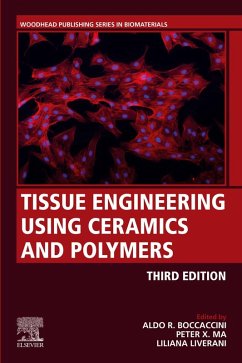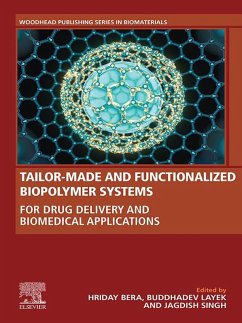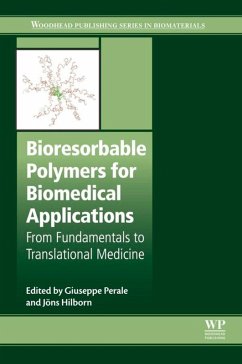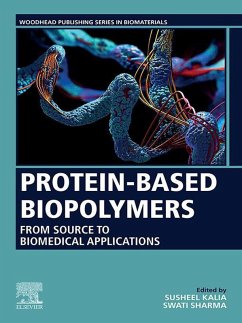
Principles of Biomaterials Encapsulation: Volume One (eBook, ePUB)
Versandkostenfrei!
Sofort per Download lieferbar
182,95 €
inkl. MwSt.
Weitere Ausgaben:

PAYBACK Punkte
91 °P sammeln!
Principles of Biomaterials Encapsulation: Volume One, provides an expansive and in-depth resource covering the key principles, biomaterials, strategies and techniques for encapsulation. Volume One begins with an introduction to encapsulation, with subsequent chapters dedicated to a broad range of encapsulation principles and techniques, including spray chilling and cooling, microemulsion, polymerization, extrusion, cell microencapsulation and much more. This book methodically details each technique, assessing the advantages and disadvantages of each, allowing the reader to make an informed dec...
Principles of Biomaterials Encapsulation: Volume One, provides an expansive and in-depth resource covering the key principles, biomaterials, strategies and techniques for encapsulation. Volume One begins with an introduction to encapsulation, with subsequent chapters dedicated to a broad range of encapsulation principles and techniques, including spray chilling and cooling, microemulsion, polymerization, extrusion, cell microencapsulation and much more. This book methodically details each technique, assessing the advantages and disadvantages of each, allowing the reader to make an informed decision when using encapsulation in their research. Principles of Biomaterials Encapsulation: Volume One enables readers to learn about the various strategies and techniques available for encapsulation of a wide selection of biomedical substrates, such as drugs, cells, hormones, growth factors and so on. Written and edited by well-versed materials scientists with extensive clinical, biomedical and regenerative medicine experience, this book offers a deeply interdisciplinary look at encapsulation in translational medicine. As such, this book will provide a useful resource to a broad readership, including those working in the fields of materials science, biomedical engineering, regenerative and translational medicine, pharmacology, chemical engineering and nutritional science. - Details the various biomaterials available for encapsulation, as well as advantages and disadvantages of conventional and contemporary biomaterials for encapsulations - Describes a broad range of applications in regenerative medicine, uniquely bringing encapsulation into the worlds of translational medicine and tissue engineering - Written and edited by well-versed materials scientists with extensive clinical, biomedical and regenerative medicine experience, offering an interdisciplinary approach
Dieser Download kann aus rechtlichen Gründen nur mit Rechnungsadresse in A, B, BG, CY, CZ, D, DK, EW, E, FIN, F, GR, HR, H, IRL, I, LT, L, LR, M, NL, PL, P, R, S, SLO, SK ausgeliefert werden.













